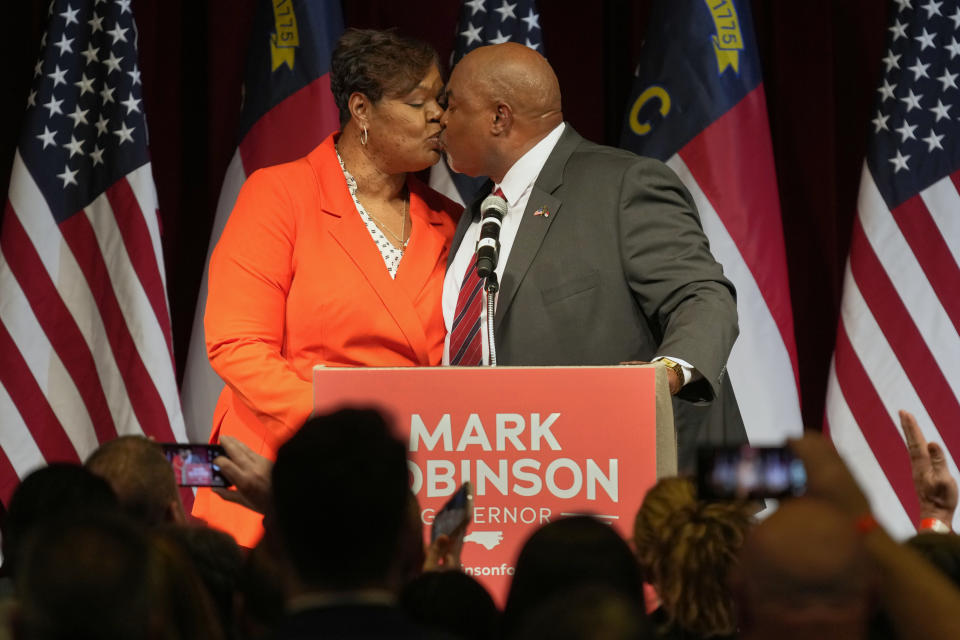What happens when a politician’s words collide with deeply personal experiences? The answer is often complex, revealing the intricacies of human sentiment intertwined with the machinery of political strategy.
The Backlash Begins
A North Carolina Republican politician recently faced significant public criticism after his previous comments mocking women seeking abortions resurfaced. This incident raises questions about the intersection of personal beliefs, political rhetoric, and the societal implications surrounding women’s reproductive rights.
The Comments That Sparked Outrage
In a political climate already fraught with tension surrounding reproductive rights, the remarks made by the politician were perceived as dismissive and callous. By belittling women’s choices and experiences, he alienated a segment of the electorate who valued empathy and understanding.
These comments did not occur in isolation; they reflect a broader trend within political discourse, whereby issues such as abortion are often reduced to sound bites devoid of the emotional weight they carry. Such remarks may garner temporary attention, but the consequences can be long-lasting.
A Personal Narrative Unfolds
In an attempt to navigate the fallout from the criticism, the politician adopted a different strategy. He released a campaign advertisement featuring an account of his wife’s personal experience with abortion. This ad was notable not only for its content but also for its timing and context.
Shifting the Focus
By sharing a personal narrative, the politician aimed to shift the focus away from his earlier comments and redirect public sentiment towards the complexities surrounding the issue of abortion. This strategic pivot seeks to humanize a topic often treated as purely political.
Yet, this approach raises ethical questions regarding the use of personal stories in political campaigns. Is it appropriate for a politician to leverage intimate experiences for electoral gain? The answer may vary depending on individual perspectives and beliefs.
Implications of Personal Narratives
The politician’s decision to bring his wife’s story to the forefront underscores the profound impact that personal narratives can wield in political discourse. Personal experiences have a unique power to resonate with an audience, eliciting empathy and fostering understanding.
However, it is crucial to consider the implications of presenting such stories as a means of political maneuvering. The line between legitimate advocacy and performative politics can sometimes blur, leading to skepticism among constituents who may question the authenticity of the narrative.
The Wider Context of Abortion Politics in the U.S.
To fully grasp the ramifications of this situation, it is essential to understand the broader context of abortion politics in the United States. Over the years, the topic has garnered considerable attention, often entwined with issues of morality, personal freedom, and women’s rights.
Historical Perspective
Abortion has long been a contentious issue in American society. Landmark Supreme Court decisions, such as Roe v. Wade, established a legal framework around the right to choose, but debates have persisted at the local, state, and federal levels.
The politicization of abortion often reflects broader cultural, religious, and ideological divides. As such, politicians can find themselves navigating a minefield of public sentiment and party loyalty when addressing their views on reproductive rights.
The Role of State Politics
In North Carolina, as in many states, the landscape surrounding abortion rights is complex and continuously evolving. The state has experienced shifts in policy and public opinion over the years, influencing the positions of local politicians.
Table 1: Recent Legislation Impacting Abortion Rights in North Carolina
| Year | Legislation | Description |
|---|---|---|
| 2011 | 20-Week Abortion Ban | Enacted restrictions on abortion after 20 weeks of gestation. |
| 2015 | Ultrasound Requirement | Mandated ultrasound imaging prior to an abortion procedure. |
| 2019 | Reproductive Health Act | Proposed bill to protect and expand access to abortion services. |
These legislative developments reflect an ongoing battle between proponents and opponents of abortion rights, interwoven with the personal narratives that often emerge during campaign seasons.
The Dynamics of Political Strategy
When analyzing the politician’s response to backlash, it becomes evident that strategy plays a pivotal role in shaping public perceptions. Candidates must weigh the potential benefits of personal storytelling against the risk of alienating constituents who may remain skeptical.
Weighing Risks and Rewards
Using a personal story as a campaign narrative carries inherent risks. While such strategies can foster connection, they can also invite scrutiny. Constituents may question the authenticity of the narrative and its relevance to the politician’s stance on reproductive rights.
Connection with Voters
In an era where voters increasingly seek authenticity and relatability from their representatives, personal stories can serve as powerful tools for connection. By presenting a human face behind a policy issue, the politician attempts to bridge the gap between abstract political discourse and the lived experiences of everyday citizens.
The Impact of Backlash on Voter Sentiment
The backlash faced by the politician following his initial comments serves as a critical juncture in understanding voter sentiment. Public reaction can be volatile, particularly when it involves emotionally charged issues like abortion.
Public Perception and Polling Data
Surveys and polling data consistently indicate that public opinion on abortion varies widely, often influenced by personal experiences and cultural backgrounds. A significant portion of the electorate values compassion and understanding over rigid ideological stances.
Table 2: Polling Data on Abortion Attitudes in North Carolina
| Polling Organization | Year | Favor Abortion Access (%) | Oppose Abortion Access (%) |
|---|---|---|---|
| ABC News/Washington Post | 2020 | 60% | 30% |
| Gallup | 2021 | 55% | 35% |
| Pew Research Center | 2022 | 57% | 32% |
These statistics reveal a nuanced landscape where voters may lean toward candidates who present themselves as empathetic and willing to engage with complex issues rather than relegating them to divisive talking points.
Long-Term Consequences
In the long run, a politician’s authenticity, or lack thereof, can significantly impact voting behavior and party allegiance. Candidates who navigate personal narratives with sincerity may garner deeper connections with constituents, while those viewed as exploitative may face consequences at the ballot box.
Navigating the Personal and the Political
The situation surrounding the North Carolina Republican politician illustrates the challenges of navigating the personal and political realms. The intertwining of individual experiences and political ideology often generates intense scrutiny and discussion.
The Necessity of Empathy
As political discourse continues to evolve, a growing emphasis on empathy is evident in various sectors. Voters are increasingly calling for leaders who demonstrate an understanding of the complexities underlying personal choices.
The Future of Abortion Politics
The ongoing politicization of abortion will inevitably continue to shape political campaigns. As candidates learn from the experiences of their peers, personal narratives may play a more prominent role in future elections, beckoning the question of how authenticity intersects with political strategy.
Conclusion: The Path Forward
In the wake of the backlash faced by the North Carolina Republican politician, the evolving landscape of abortion politics raises essential considerations for candidates navigating similar terrains. The delicate balance of personal storytelling and political advocacy stands as a testament to the intricate nature of human emotion in the realm of public policy.
Moving forward, political figures must grapple with the implications of their words and the narratives they choose to convey. The importance of empathy—a sentiment that resonates with voters—cannot be overstated. In an age where connection and understanding reign supreme, the personal and political will continue to intertwine, shaping the ever-evolving narrative surrounding reproductive rights in America.
Discover more from Stockcoin.net
Subscribe to get the latest posts sent to your email.

